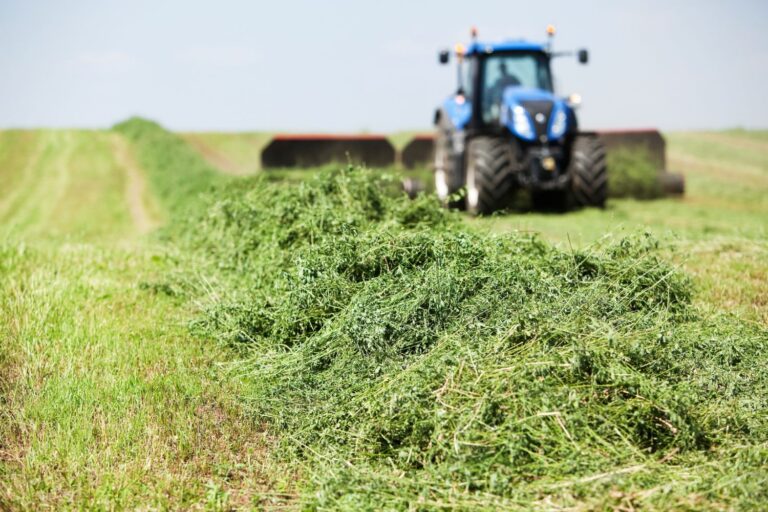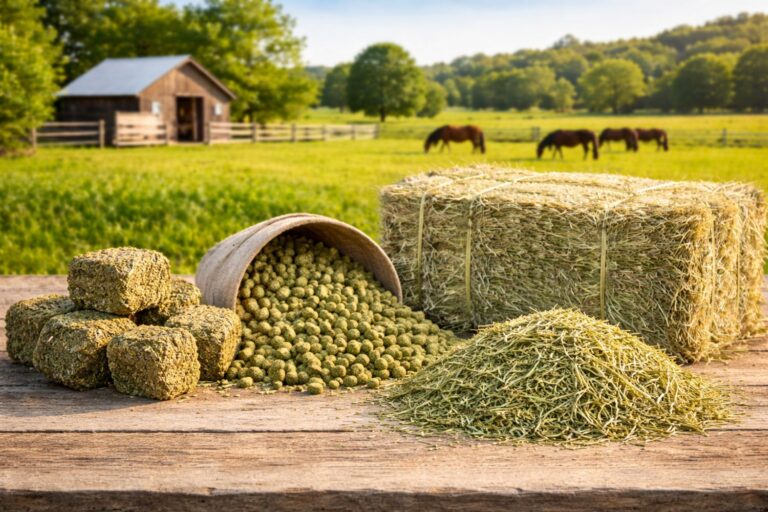As temperatures rise, so do the challenges of keeping horses healthy and comfortable. Hot weather puts added stress on your horse’s body, increasing their need for hydration, electrolytes, and carefully managed nutrition. Alfalfa, known for its rich nutrient content, can still play a key role in a summer diet—but it’s important to make a few strategic adjustments. Here’s how to support your horse’s health during the hottest months of the year.
Hydration First: Why Water Matters More Than Ever
Hot weather increases a horse’s water requirements significantly. Dehydration can lead to poor performance, heat stress, and colic. Ensure your horse has access to clean, fresh water at all times. On especially hot days, horses can drink 10–20 gallons or more, depending on activity level and body weight.
Tips to Encourage Drinking:
- Add electrolytes to your horse’s feed or water to replace minerals lost through sweat.
- Offer water frequently, especially after exercise or transport.
- Provide a salt block or loose salt to naturally stimulate thirst.
- Keep water troughs clean and shaded to maintain freshness.
Feeding Alfalfa in Hot Weather
Alfalfa is an excellent source of protein, calcium, and digestible fiber, making it a popular forage choice year-round. However, because it is nutrient-dense, horses may need less of it in hot weather if they’re exercising less or eating less due to the heat.
Considerations for Feeding Alfalfa in Summer:
- Portion Control: Reduce alfalfa slightly if your horse is not in full work to avoid excess protein and heat production from digestion.
- Pair with Grass Hay: Mixing alfalfa with grass hay provides a lower-calorie, higher-fiber blend that can reduce the overall protein load while keeping digestion smooth.
- Watch for Ammonia Smell: Excess protein not utilized by the horse is excreted as urea, which can create a strong smell in stalls. This may be a sign that you’re feeding more alfalfa than your horse needs.
Cooling from the Inside Out: The Role of Forage
Feeding smaller meals more frequently, including soaked hay cubes or hay pellets, can help horses stay hydrated while maintaining a steady intake of fiber. Soaked alfalfa cubes also add water to the diet and are especially helpful for horses that are picky drinkers.
Electrolytes and Mineral Balance
Sweating leads to loss of sodium, potassium, and chloride—essential electrolytes for muscle function and hydration. Supplementing with an electrolyte product during hot weather helps keep horses in balance.
Key Points:
- Choose a balanced electrolyte with little or no added sugar.
- If using alfalfa-based feeds, ensure your horse’s total calcium intake isn’t too high compared to phosphorus and magnesium.
Adjusting to Lower Activity Levels
Horses often slow down during high heat, especially if they’re not in regular work. Adjust feed rations accordingly:
- Lower the energy density of the diet if horses are exercising less.
- Continue offering forage to support gut health, even if concentrate feeds are reduced.
–
Feeding horses in hot weather is all about balance—hydration, nutrients, and digestibility. Alfalfa can remain a valuable part of the diet, but small adjustments in portion size, forage mix, and electrolyte supplementation can make a big difference. For high-quality alfalfa cubes and bales that support your horse’s health year-round, trust Paramount Cubing. Learn more at paramountcubing.com.



